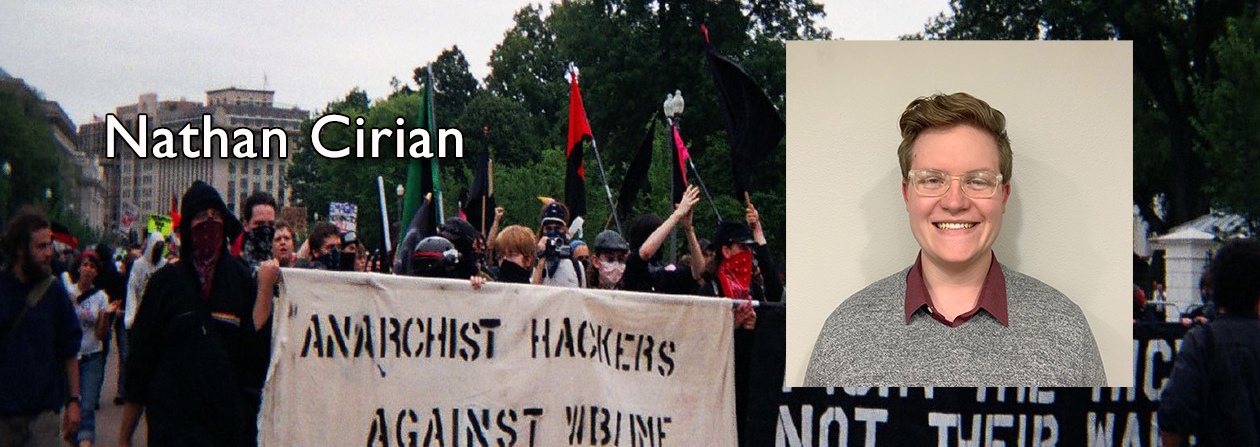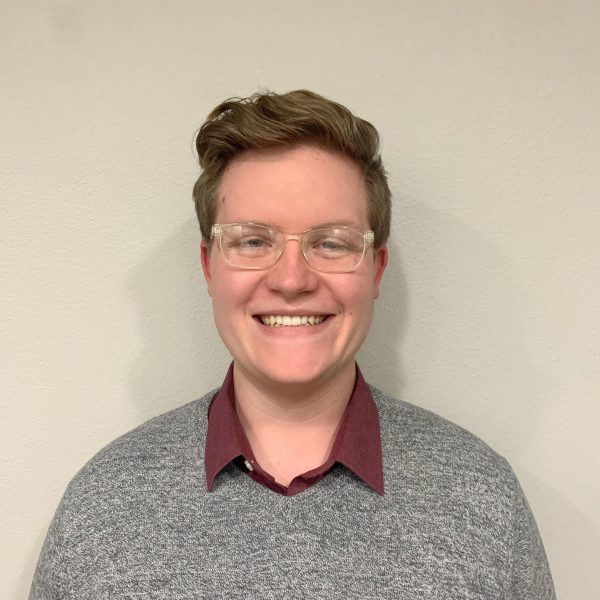CATEGORIES: News

Nathan Cirian is a second year MA student.
Tell us about yourself. Where are you from? How did you get here?
I was born in Denver, Colorado in 1996. My family eventually settled down in Davenport, Iowa when I was about five. I had the typical history interests as a kid: the World Wars, the Titanic, etc. What really inspired me to become a history major during my B.A. was my AP US History teacher during my junior year. I had not appreciated history beyond a surface level before that class. I originally wanted to become a high school history teacher; however, I fell in love with writing history after completing my first two seminar papers during my sophomore year. I loved learning new information while developing a broader argument about history. I completed my Bachelor’s in Spring 2019 and began my Master’s in Spring 2020.
What questions do you want to pursue while you’re at Iowa State?
Throughout my adult life, I have been interested in extremism of all kinds. I regularly watch, listen, and read about extremist topics outside of my personal work for fun. My personal work, broadly, focuses on 19th century American anarchism. Primarily, I am interested in Anarchist terrorism. As for questions, I am interested in finding out how the American public viewed Anarchists as well as how Anarchists viewed themselves. American anarchists are considerably understudied compared to their European counterparts. I am also interested in what drove Anarchists to commit acts of violence. In a broader sense, I would also like to investigate “smaller” Anarchists, whatever that may look like. Many histories of Anarchism in the United States have focused on the key players: Johann Most, Emma Goldman, Alexander Berkman, Lucy Parsons, Benjamin Tucker, etc. Hopefully through an investigation of various English, German, and Yiddish speaking communities, I can broaden our understanding of lesser known American radicals. There are obvious difficulties, such as, “What is an anarchist actually?,” which we still see today. I hope to at least provide some clarity to this definition as well.
What do you want to do with your degree?
I am planning on continuing on towards my PhD and going into academia. I am open to other pathways but I would prefer to teach at a university and write. I enjoy academic environments and have spent most of my life within the walls of various types of schools. If that does not work out, I hope my focus and passion for studying extremists will allow me to be of use elsewhere.
What advice would you give your colleagues and/or prospective students?
You are often better than you think you are. Many Graduate students see themselves in an impossible position where they know they have so much to learn but that, inevitably, we simply cannot learn everything. In my pursuit to tackle this inevitability, I have checked out an impossible amount of books for my work. You cannot read everything and eventually, you will have to bring those books back. Pace yourselves and tackle your reading in manageable chunks.
Also, you may not think you can get into graduate school. I certainly believed that I could not. Even if you are only considering it a little bit, go for it. What I have learned so far has changed the way I think and tackle life. It can be stressful but the feeling of understanding the breadth of arguments in the field you are passionate about and getting to join in on those conversations is so satisfying. If you are doubting your abilities, just try. There is never any harm in trying to pursue something you are passionate about.
